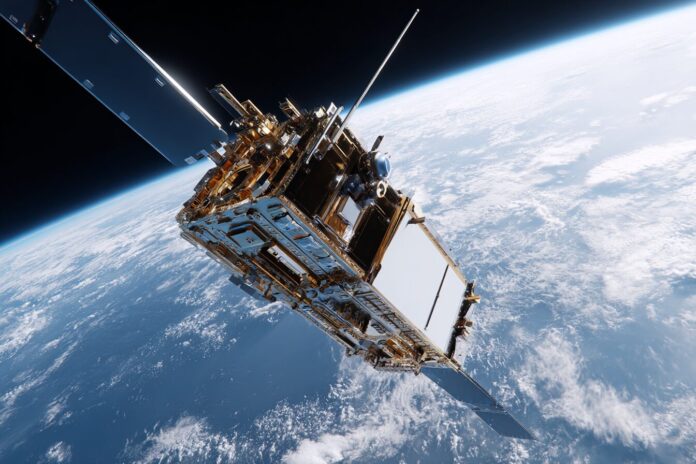Quantum Leap: A New Chapter for Space and Computing
On June 23, 2025, the world witnessed a revolutionary milestone: the first quantum computer was launched into Earth’s orbit. This event not only marks another technological advance but signals the dawn of a new era where quantum mechanics and the vast frontiers of space converge to unlock possibilities once considered science fiction.
Most importantly, this breakthrough has set in motion a series of innovations. Because quantum computing operates on principles such as superposition and entanglement, scientists can now explore data processing in environments far removed from the conventional laboratory. In light of this, the use of orbiting quantum computers will likely reshape sectors ranging from space exploration to ultra-secure communications, as reported in recent updates on Science News.
What Sets a Space-Bound Quantum Computer Apart?
This quantum marvel is notably different from its traditional, laboratory-bound counterparts. Miniaturized to a sleek 3-liter form with an impressive power consumption of just 10 watts, it leverages photonics to perform complex calculations. Because satellites operate under strict power budgets and endure extreme temperature cycles, such drastic miniaturization is not only innovative but essential.
Furthermore, its photonic design uses light particles to boost computational speed while minimizing energy needs. Therefore, this design integrates seamlessly with the rigorous demands of space, ensuring that the computer remains operational even under cosmic conditions. Engineers meticulously tested these systems to meet the challenges of orbit, overcoming typical obstacles encountered by bulky, energy-hungry lab qubit systems.
Why Put a Quantum Computer in Space?
Placing a quantum computer in orbit opens up new avenues for data processing and scientific research. Typically, satellite missions generate enormous amounts of data that require ground-based processing. However, by analyzing this information directly in space, quantum computers relieve the processing bottleneck and reduce the lag in receiving actionable insights.
Moreover, onboard processing means that satellites can make real-time decisions during missions. Because of their unique capabilities, quantum computers can efficiently handle data intensive operations such as image analysis and anomaly detection. Besides that, this approach significantly reduces the volume of data sent back to Earth, thereby optimizing bandwidth and enhancing operational efficiency.
Novel Capabilities and the Challenge of Space
Beyond speed and efficiency, space-based quantum computers provide a tangible platform to test the fundamental principles of physics. Scientists now have a rare opportunity to study how quantum phenomena like entanglement behave under harsh cosmic conditions, including temperature extremes and high levels of radiation. As indicated by early tests, these systems are robust enough to maintain functionality where classical systems might fail.
Additionally, these computers demonstrate resilience by overcoming the challenges of miniaturization and energy constraints. Because they are designed to thrive in space, researchers can push the boundaries of quantum theory by exposing the devices to conditions that cannot be replicated on Earth. Consequently, further experimentation may yield insights into quantum error correction and system stability, which are essential for the future of both space exploration and terrestrial quantum computing.
Quantum Communication: The Next Logical Step
Quantum communication has already proven its potential through quantum key distribution, ensuring ultra-secure connections around the globe. With a space-based quantum computer, these advances can be taken a step further. By processing encrypted information locally in orbit, such systems can enable faster and more secure satellite-to-satellite communications.
In addition, the advent of these systems may serve as critical nodes in the creation of a global quantum network. As discussed in recent research on Google’s blog on traversable wormholes, the integration of quantum processors in space-driven platforms could facilitate not only secure data relay but also groundbreaking experiments in quantum information transfer. Therefore, the confluence of quantum computing and satellite technology heralds a transformative era for digital communication security.
Speculative Horizons: Multiverses, Simulations, and Beyond
While many of the practical applications are currently being explored, the theoretical potential of quantum computers in space is vast. Researchers speculate that these systems might one day simulate entire universes or even offer insights into the existence of multiple realities. Because quantum computers can process vast, parallel probabilities, they provide an intriguing method to probe the underlying structure of our cosmos.
Indeed, speculative ventures such as Google’s Willow processor, which has sparked debates about multiverse theories, highlight this exciting development. As noted by several experts and detailed in an in-depth piece by EDRM, there is mounting evidence that quantum technologies could soon simulate not just isolated phenomena but entire space environments. Hence, these early experiments may lead to a deeper understanding of quantum reality and its broader implications for science and philosophy.
The Road Ahead: Science, Security, and the Human Imagination
Looking forward, the deployment of quantum computers in space is only the beginning of what could be an extensive journey of exploration and innovation. Because the advancement of quantum hardware is paralleled by improvements in software algorithms and error correction techniques, future devices are expected to be even more resilient and capable. New satellite missions will likely integrate these systems to achieve faster decision-making processes and safeguard communication channels against emerging cyber threats.
Besides that, the implications stretch beyond practical applications into realms that stir the human imagination. As quantum-powered satellites become more common, they will serve not just as tools for exploration but as bridges between our current understanding and the untapped potential of quantum space technology. Therefore, this breakthrough is as much about advancing science and security as it is about inspiring future generations to dare and dream bigger in the realm of quantum exploration.
References
- Science News: A quantum computer goes to space
- EDRM: Quantum Leap—Google Claims Its New Quantum Computer Provides Evidence That We Live in a Multiverse
- Google Research Blog: Making a Dual of a Traversable Wormhole with a Quantum Computer
- Quanta Magazine: Physicists Create a Wormhole Using a Quantum Computer



